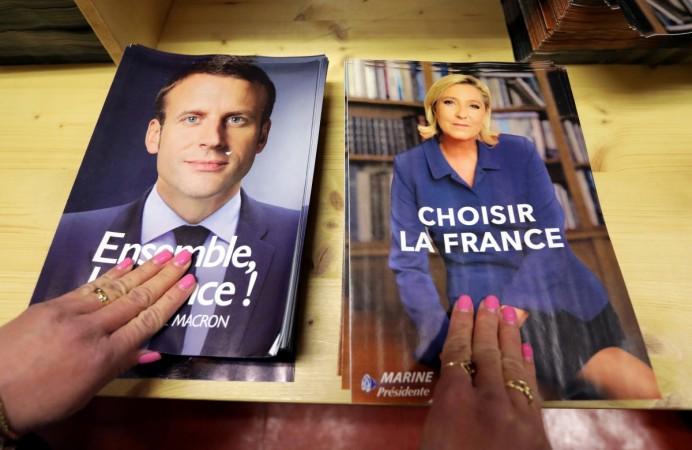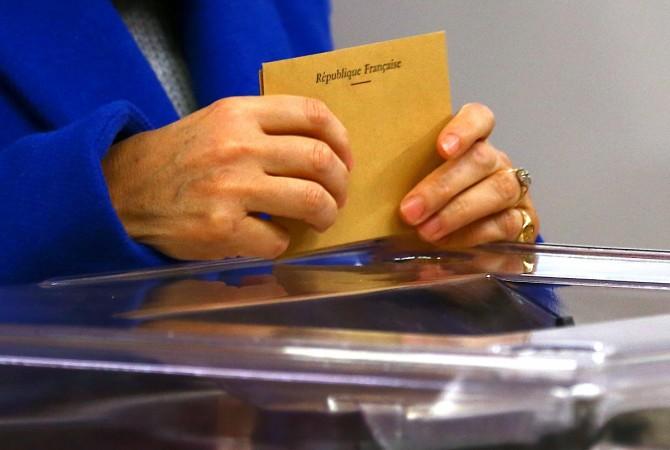
Voting for France's most crucial presidential election in decades began on Sunday, May 7, in around 66,546 polling booths in the country, with the French set to choose their next leader in the centrist candidate Emmanuel Macron or the far-right leader Marine Le Pen.
The final polling day of the French election follows an unusually bitter campaign which has seen voters hurling eggs and flour, protesters clashing with police and candidates insulting each other on national television.
The presidential election campaign also saw a last-minute surprising announcement of a hack attack on Macron, a 39-year-old investment banker who has never held elected office before. His campaign team on Friday (May 5) announced that it had become a target of a "massive" computer hack that dumped its campaign emails online, one-and-half days before the voters choose between the main candidates.
The face-off is set between a "globalist" Macron, who is in favour of pen trade, immigration and shared sovereignty, against a "nationalist" Le Pen, 48, who is anti-immigration and defends strong borders and national identities.

Latest polls have put Macron ahead of Le Pen, set to win the presidential elections.
Most of the polling booth in the French cities will shut at 17:00 GMT.
What are the main issues of the French presidential elections?
Security: More than 250 people have been killed in terror attacks in 2015 and 2016 in France. Terror threats and the issue of security weigh heavily on this year's election, giving rise to Le Pen's anti-immigrant security agenda. Shortly after the shooting in Paris' Champs Élysées, three days before the election, Le Pen held a press briefing calling for all foreigners who identify as Islamist radicals to be deported.
Economy: France's economy has stagnated for years now, as the country is still reeling under the aftermath of the 2008 financial crisis. Unemployment rate in the country stands at 10 percent , which is higher than most of the European Union (EU) countries. The voters are looking for a presidential candidate who can provide a financial stability in the country. Labour laws, job creation, taxation and social and welfare provisions are one of the most important campaign themes for this year's elections.
Immigration: Candidates like Marine Le Pen, are banking high on the anti-immigrant sentiments which swept across Britain and the United States last year. Le Pen wants to impose strict limits on legal immigration and free movement under the Schengen Agreement. The Far-Right leader has also proposed a Frexit, which could see France leaving the EU if she wins. Although polls state that many voters in the country feel positive about the European bloc.

















